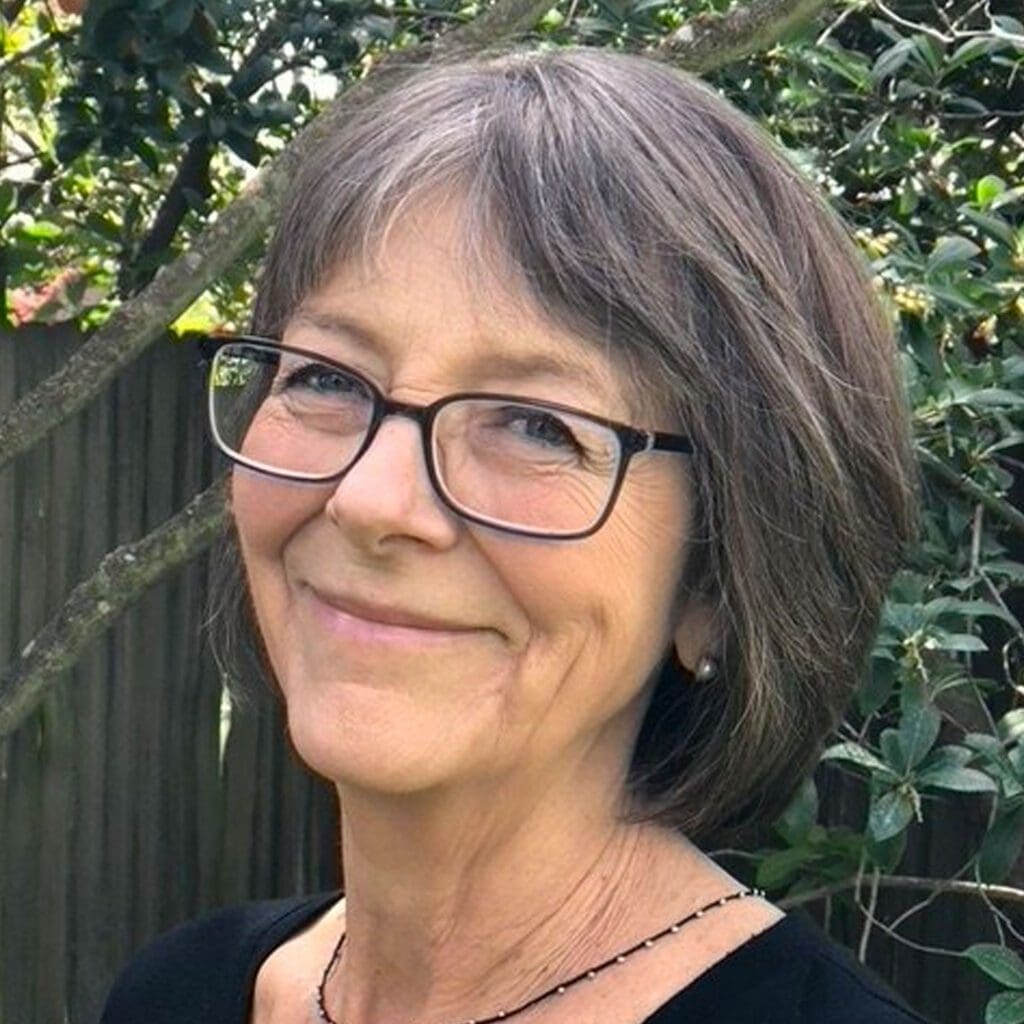I don’t much like the people I “put up” with, though, I piously tell myself, I’d like to like them. When I’m in the company of people whose views strike me as narrow, obnoxious, ill-informed, or dangerous, I struggle to hang onto some notion of neighbourly love that can quell my impatience and hasty judgments. Aware of how often I face that struggle, and how commonly political and social antagonisms divide churches full of people more or less like me—people with general goodwill and an assortment of strong opinions—I found James Calvin Davis’s reflections on forbearance deeply refreshing. They offer exactly the reminders we need of what life in beloved community requires.
I imagine it took a certain courage to title the book Forbearance. It’s not one of the more celebrated virtues. Indeed, as Davis acknowledges, the word has a slightly dusty, antique ring and is easily confused with condescension, grudging acceptance, or veiled judgment. Or the self-satisfied “putting up with” that completely discredits the one who prides herself on suffering fools, if not gladly, at least without unseemly violence. (See above.)
But forbearance, we learn as we read these rich reflections on biblical ethics, Christian history, and contemporary church conflicts, is a broad, generous, discerning, wise, complex virtue—arguably foundational for Christian life. “In the practice of forbearance,” Davis writes, “Christians do not create unity; we confess it.” I paused over that sentence. It offers a timely corrective to one of the more popular and persistent heresies: that somehow the church is a function of human planning and governance rather than a living body whose breath and being come from the one who breathed on the small group of followers he called friends, telling them to “receive the Holy Spirit.”
“We are one in the Spirit,” we sing—not “May we one day become one in the Spirit,” though that prayer has its place. The fact of unity and the hope of unity are both real experiences of Christians in community; like so many other truths about the life of faith, they coexist in paradox. But it may be that at this historical moment, we need to be called back to the fact in order to sustain the hope. What unites us is God’s own infinitely merciful will. What divides us are digressions and misunderstandings, competing alliances, and political and theological arguments that can be resolved rightly only by a generous, patient, humble, wise, deliberative commitment to continue living with the quarrelsome, myopic lot who are our brothers and sisters, and among whom we must count ourselves.
Exhibiting the patience that is the first of the virtues he identifies as facets of forbearance, Davis guides us unhurriedly through reflections on humility, hope, wisdom, faithfulness, and friendship. Forbearance requires and teaches humility; it fosters authentic hope rather than self-interested expectations; in practicing it we develop discernment, which “sees disagreement not as a problem to be solved but as an opportunity for maturation in the faith”; it encourages faithfulness not primarily to tenets or doctrinal specifics but to the pilgrim path we travel in relationship to those members of Christ’s body among whom we happen to find ourselves. In that body—the beloved community we know as church—we find friendships that don’t arise solely from our predilections and affections, but from deep recognition of what we hold closest and dearest, and in common.
Davis’s writing is striking in what I would call its pastoral clarity; he writes as to brothers and sisters in faith, acknowledging that he has been privy to and part of the pullings and tuggings as his own church has attempted to work out its salvation, and its positions on public issues, in anxiety and bumbling—which isn’t quite the same as fear and trembling. He points the way to the grey area between the icy poles of argument where we are called find our way together, even in a fog of misinformation, misunderstanding, and media wars, reminding us that we need forbearance to “see past the binaries in which most of our ecclesial and civic debates are stuck” because a dismaying range of public media reduce social and moral differences to black and white, either/or alternatives. His wry list of current antagonisms that have run too often to extremes makes its own point about the need for more nuance, discernment, intelligent, gracious listening, and civility:
You either hate women or like to kill babies. You are either a hawk or a peacenik. You are either homophobic or a fan of bestiality. You either prefer owls to people or condone raping the environment. You are either a socialist or a one-percent. You are either for law enforcement or for African-American rights. This is what most of our public debate looks like these days.
Escaping the centrifugal force of these oppositions requires a force more powerful. Happily, a force greater than gravity itself can and does lift us up and out of the sticky mire of pointless bickering onto solid rock where, getting our footing, we may face each other in our disagreements, secure, non-anxious, and calmed by love. There we may “lift high the cross,” not as a party banner but as a signifier of the wide reach of divine embrace and the fact of forgivenness. That is where we can and must begin our negotiations.
Escaping the centrifugal force of these oppositions requires a force more powerful.
But it would be glib to assume those negotiations can’t become strenuous, emotionally taxing, threatening at times, and costly. The issues that continue to divide churches—party politics, the rights of LGBTQ church members, divestment, how the poor should be cared for, institutional racism, to name a few—have deep roots in local and national history, educational orthodoxies, and centuries-old theological debate over how to read the Bible. To face our disagreements over these issues, Davis writes, is to make “a positive commitment to living with the productive discomfort of difference as a reflection of the grace of God.” “Productive discomfort” is a phrase to hang onto—a succinct reminder of the cost of discipleship. The learning edge is never an altogether comfortable place to be. I think of how my best teachers have kept me there, urging and correcting, laughing at times and at other times pulling me up short to point out facile assumptions or incomplete evidence. We can be teachers for each other, translators, guides, partners in exploration, and sometimes prophets if we recognize that those roles may shift and authority shared as each of us calls prayerfully on our own life experience and our own understanding of Scripture, humbly seeking together the truth and justice we long for.
In two of the final chapters Forbearance focuses on those two terms—truth” and “justice” —as priorities that respectively define “conservative” and “liberal” concerns. The former tend to ask, “Does the practice of forbearance undermine the church’s commitment to the preservation of God’s truth?” The latter often wonder how to challenge the entrenched practices that keep people of colour and other groups at the margins of mostly white churches whose pews are filled with people who take their privilege for granted. “We must push back,” Davis writes, “against the notion that a commitment to ‘God’s truth’ and a commitment to ‘social justice’ are somehow distinct.” He recalls a 2014 Columbia Seminary statement calling for forbearance in debate, for instance, because “tag-words like ‘purity’ and ‘inclusivity’ have been weaponized in an increasingly hostile ideological environment.”
“Productive discomfort” is a phrase to hang onto—a succinct reminder of the cost of discipleship.
Though he typifies the controversies in these fairly broad strokes, his analysis covers a multitude of particulars that arise within churches. Shall we approve a wedding for this same-sex couple? Can we sign on to the General Assembly’s decision to divest? What should be said from the pulpit about the wars we wage? Have we reached the point where neutrality is complicity? Does the national flag belong in the sanctuary? Do we undertake expensive renovation of the church building or give the money to missions and put up with threadbare carpets and creaking pews? How far do we accommodate contemporary “youth culture”—the music, the street language, the electronic addictions—and when do we challenge them to acquire a taste for hymns, contemplative quiet, or Jacobean English?
As we work through these particulars, considering closely what must be excluded for the sake of ecclesial purity or integrity and what must be included in the name of God’s wide mercy, we do well to remember that ” a certain amount of our disagreement results from misunderstanding.” Deliberation, a term and practice Davis spends a good part of his final chapter defining, is how conceptual commitment becomes active engagement. When we “reason together,” patiently seeking and holding common ground, with courage and openness to correction, we are likely to be surprised by those whose views we may tend to oversimplify and dismiss. We may come to understand their motivating hopes as well as fears. We may find that some of our differences are more semantic than substantive. We may also end up agreeing to disagree, having finally to remember that “God is God and we are not,” that we are not appointed to judge one another, that what is Caesar’s and what is God’s is an ongoing question to be wrestled with but perhaps not resolved in our lifetimes. That doesn’t mean the work is fruitless—far from it. “Doing the hard work of staying involved, meeting ignorance, callousness, and prejudice with the antidotes of love and persistent presence,” Davis reminds us, “offers more hope for the emergence of a just truth than refusing to engage at all.”
Years of classroom teaching have convinced me that one of the most important objectives of education is to enable people to tolerate ambiguity and to pay attention to process rather than focusing too quickly on goals and results. Long, slow, deliberative conversation, these days, is countercultural. But then, the church is called to challenge culture; this is one of the ways in which it can perhaps most strikingly and effectively rise to its mandate to be, in Doug Ottati’s words, “in and for the world.” H. Richard Niebuhr’s catalogue of ways to understand the relationship between Christ and culture came to mind often as I read this invigorating exploration of and invitation to forbearance. Christ operates against, in, and above culture, maintaining always through the church a paradoxical relationship to culture, and ultimately transforming culture. These terms open a wide territory for the pilgrim church to inhabit and explore. We don’t have a map, but we have a guide: “I am the way,” Jesus said, calling his followers not to a particular route, but to an enduring relationship. “Follow me” is always a somewhat disconcerting directive; we may well wonder, as the disciples did, “Where to?” Sometimes the answer to that might be into the quagmire or the cave or thicket or labyrinth. Sometimes it means into the meeting room where tepid coffee is being served and a lengthy agenda distributed among a group of elders deeply at odds. The promise that can make such a gathering an occasion of grace is presence: “Where two or three are gathered in my name, I am there among them.” In light of that presence—in the divine light of that presence—we may find ourselves able, with grace and good humour and a measure of forbearance, to do far more than “put up with” one another: we may find ourselves, in the midst of deep differences, dwelling already in unity.




